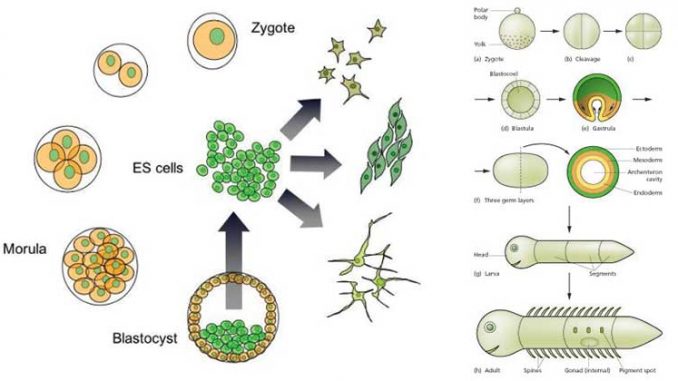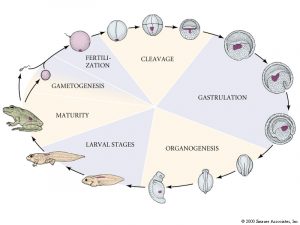
Abstract
The current state of knowledge strongly supports the view that development and differentiation are a function of variable gene activity. The crucial area of ignorance, however, is the mechanism that controls gene expression. The recent development of powerful experimental techniques in molecular biology, commonly known as recombinant DNA technology, now allows investigations to understand the mechanisms that operate in the regulation of gene activity.

The technique basically consists of the use of several recently discovered enzymes that facilitate the cutting and joining of DNA to build recombinant molecules, which can be transferred from one organism to another. The information thus obtained on the structure, organization and expression of genes would help to unravel the mysteries of the mechanisms involved in the fundamental processes of life.
The Epistemological Organization of Developmental Biology
A recurring theme in the long history of developmental research is that explaining the ontogeny of the form consists of many interrelated questions about various phenomena. Philosophers have sometimes tried to compress these questions into one broad problem.
The real question about metazoan ontogeny is how a single cell gives rise to the required number of differentiated cell lineages with all the necessary inductive developmental interactions to reproduce the form of the mature organism (Moss 2002: 97).
The central problem in Developmental Biology Recombinants is to understand how a relatively simple and homogeneous cell mass can differentiate into a relatively complex and heterogeneous organism that closely resembles its parent(s) in relevant respects (Robert 2004: 1).

Description
Developmental biology is a great field for scientists who want to integrate different levels of biology. We can take a problem and study it at the molecular and chemical level (e.g., how are globin genes transcribed and how do the factors that activate their transcription interact with each other in DNA?), at the cellular and tissue level (what cells are capable of producing globin, and how does globin mRNA get out of the nucleus?), at the organ and organ system levels (how are capillaries formed in each tissue, and how are they directed to branch and connect?), and even at ecological and evolutionary levels (How do differences in globin gene activation allow oxygen to flow from mother to fetus, and how do environmental factors trigger the differentiation of more red blood cells?).
Developmental biology is one of the most exciting and fastest-growing fields in biology, creating a framework that integrates molecular biology, physiology, cell biology, anatomy, cancer research, neurobiology, immunology, ecology and evolutionary biology. The study of development has become fundamental to understanding any other area of biology.
